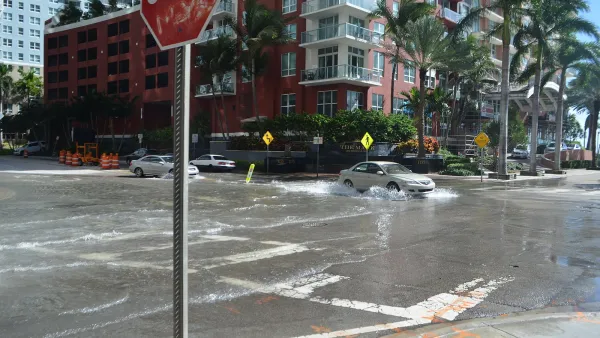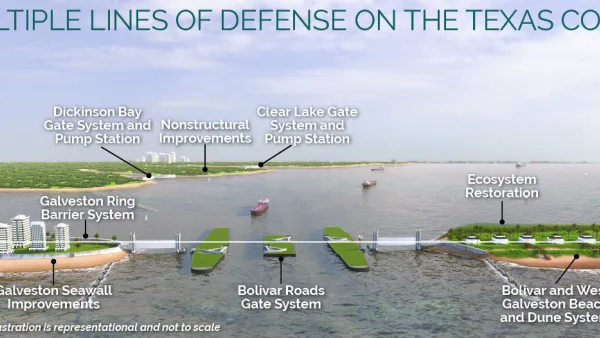In advance of President Obama's long-awaited speech on climate change, NPR looked at climate adaptation - preparing for the environmental changes it will cause. Rising sea level is the topic. In the U.S., two cities stand out: New York and Miami.
NPR host Jacki Lyden introduces the "cover story today: climate change and drowning cities, learning to live with rising seas." The 11-1/2 minute report is available as text, podcast and streaming audio.
Mayor Michael Bloomberg's "ambitious 20-year plan that includes seawalls....and flood control structures in the city streets" puts New York City in a class by itself in preparation, states Lyden's guest, science and nature writer Tim Folger. "But will it be enough?", he asks.
On the other extreme - not because it isn't preparing for sea level but because it may have the most to lose and the most difficult to defend, is Miami. Lyden states that "(i)f sea levels rise three feet (by mid-century) as is projected, the entire city of Miami will be uninhabitable". She asks Folger to explain why Miami will be so difficult to defend from rising sea level.
(T)he biggest challenge for Miami and all of Southern Florida, really, is that the sorts of solutions that work in New York and in the Netherlands and perhaps even in Ho Chi Minh City [which has a contract with the Dutch to try to protect that city from sea level rise, he explained earlier] won't work in Miami because Miami and most of Southern Florida rests on this foundation of really highly porous limestone. It's just like this honeycomb or like petrified Swiss cheese. It's extremely porous. And so building a barrier won't really work because the water will just continue to flow beneath that barrier.
- A storm water master plan that takes into account climate change and rising tides. We are in the process right now of doing a major road construction project on Alton Road.
- Lifting the Alton Road construction project six inches.
- Raising sea walls "on the western quarter of the island...and by adding pump stations so we can pump water out quicker"
While the timing of this story is meant to coincide with President Obama's speech on climate change, it unintentionally corresponds with a "king tide - when high tide coincides with the largest full moon". Denise Keener of the Environmental Protections Agency, Lyden's third guest, explains that "(t)he ineluctable tidal pull results in a storm surge without the storm".
Will the king tide serve as a "wake-up call for communities", as Keener hopes, so they can prepare for rising sea levels? If not, the 500% increase in homeowners insurance in the last decade might do so.
FULL STORY: Coastal Cities Prepare For The Rising Tide

Analysis: Cybertruck Fatality Rate Far Exceeds That of Ford Pinto
The Tesla Cybertruck was recalled seven times last year.

National Parks Layoffs Will Cause Communities to Lose Billions
Thousands of essential park workers were laid off this week, just before the busy spring break season.

Retro-silient?: America’s First “Eco-burb,” The Woodlands Turns 50
A master-planned community north of Houston offers lessons on green infrastructure and resilient design, but falls short of its founder’s lofty affordability and walkability goals.

Test News Post 1
This is a summary

Analysis: Cybertruck Fatality Rate Far Exceeds That of Ford Pinto
The Tesla Cybertruck was recalled seven times last year.

Test News Headline 46
Test for the image on the front page.
Urban Design for Planners 1: Software Tools
This six-course series explores essential urban design concepts using open source software and equips planners with the tools they need to participate fully in the urban design process.
Planning for Universal Design
Learn the tools for implementing Universal Design in planning regulations.
EMC Planning Group, Inc.
Planetizen
Planetizen
Mpact (formerly Rail~Volution)
Great Falls Development Authority, Inc.
HUDs Office of Policy Development and Research
NYU Wagner Graduate School of Public Service




























